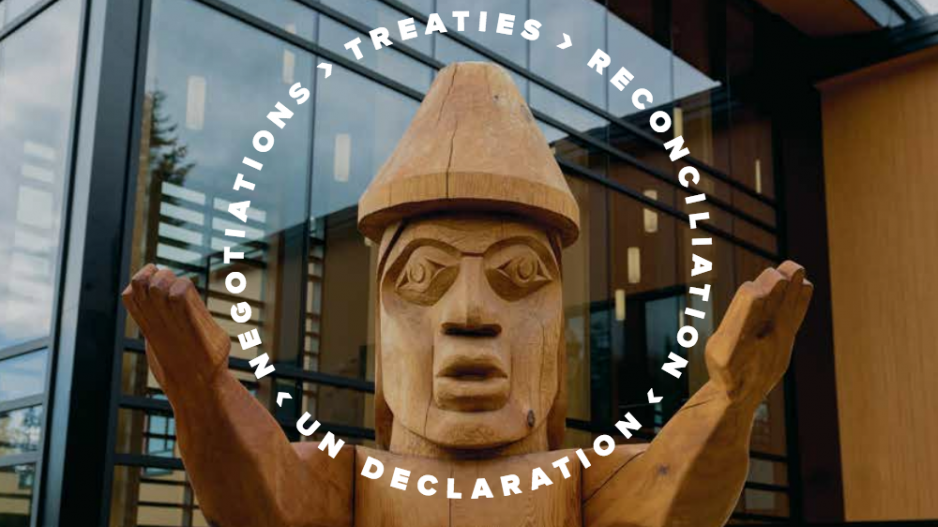Only one of the three First Nations that has claims on downtown Vancouver is negotiating under the British Columbia Treaty Commission process.
The October 13-released annual report of the agency that facilitates talks between First Nations and the B.C. and federal governments says the 580-member Tsleil-Waututh Nation is in stage four of the six-step process that launched almost 25 years ago.
“The tripartite table has completed most of its chapter work, but the lack of available urban land remains a challenge in reaching agreement on a land package,” the report said. “Tsleil-Waututh continues to engage its community as well as local government.”
Tsleil-Waututh is among 16 nations in what the commission calls “active negotiations.” Its traditional territory around North Vancouver and the Lower Mainland overlaps with Katzie, Kwikwetlem, Musqueam, Squamish and Sto:lō. Tsleil-Waututh has a protocol agreement with Musqueam Indian Band and Squamish Nation and is a partner with those two in several land deals that also include the Aquilini Investment Group.
The report said Musqueam and Squamish are among 25 First Nations not negotiating. The most recent milestone listed by the BC Treaty Commission for Squamish was a 1995 openness protocol. Meanwhile, Musqueam signed a framework agreement in 2005.
Seven treaties have been implemented under the process, including the 2009 Tsawwassen First Nation treaty.
The 365-member, self-governing Tsawwassen reached a major milestone in economic development October 6 with the opening of the Tsawwassen Mills outlet mall. Its 2014 deal to lease 180 acres to Ivanhoe Cambridge for 99 years was the biggest non-resource development deal in B.C. that year.
The band joined Metro Vancouver’s board in 2009 and has made 23 laws and 82 regulations under self-government.
The terms of the 2009 treaty included 724 hectares of land and a one-time payment of $13.9 million over 10 years, plus $2 million for extinguishing mineral rights under English Bluff, $13.5 million for startup and transition costs, $7.3 million for resource management and economic development and $2.6 million a year for ongoing programs and services.
The commission said eight treaties are in final agreement negotiations and nine others are in advanced agreement-in-principle negotiations. B.C. has 200 First Nations. The 2011 Census estimated 232,290 people in B.C. had an aboriginal identity.
“Active or completed negotiations involve 40 First Nations, representing 76 Indian Act
Bands in B.C. and one in Northwest Territories,” the report said. “This means 38% of all B.C. Indian Act Bands are actively negotiating or are already implementing a modern treaty.”
BCTC, Victoria and Ottawa have been under fire for the glacial pace of negotiations with a process that has been estimated to cost more than $1 billion since it began. The report said the commission is seeking ways to streamline the process to speed-up talks.
“Some tables will explore new concepts, such as condensed agreements in principle, stepping stone approaches, incremental treaty agreements, sectoral agreements, and core treaties. The Treaty Commission may assist in the facilitation of these new developments.”
BCTC has been without a full-time chief commissioner for more than a year and a half. Former B.C. aboriginal relations minister George Abbott was set to succceed Sophie Pierre on April 1, 2015, but the B.C. Liberal cabinet suddenly rescinded Abbott’s appointment in late March of that year. Celeste Haldane is the acting chief commissioner.




